- Find a Provider
-
Services
-
Redeemer Health provides compassionate care across every stage of life.
- View all Services
-
- Patients & Visitors
- Locations
- Careers
categories:

Redeemer Health's success at promoting and supporting breastfeeding has led to Keystone 10 (K10) designation by the PA Department of Health and the American Academy of Pediatrics Pennsylvania Chapter. To earn this special designation, Redeemer Health completed a series of 10 evidence-based steps that demonstrated achievement in such elements as breastfeeding initiation, exclusive breastfeeding, skin-to-skin contact, and rooming-in.
K10 designation is especially meaningful because studies have shown that breastfeeding is the single most important way to improve infant health outcomes. It has been found that babies who receive their own mother’s milk are healthier and experience fewer hospitalizations. Additionally, women who breastfeed lower their risk of cancer, cardiovascular diseases, and diabetes compared with women who do not breastfeed.
“Keystone 10 designation shows our dedication to promote and support breastfeeding for all of our mothers and babies. It demonstrates our overall goal of improving breastfeeding care and rates, and ultimately improving the health of mothers and babies," says Christina Marczak, Director of Maternal Child Health at Redeemer Heath.
Redeemer Health’s support of breastfeeding begins even before a baby is born. We provide free online prenatal breastfeeding classes to prepare expectant moms for their breastfeeding journey and help them feel confident about latching, positioning, feeding amounts, and where to access breastfeeding resources and products. Once in our maternity center, new moms receive one or two visits from a lactation consultant, as well as supplemental breastfeeding education and assistance from maternity nurses. Additionally, we provide breastfeeding booklets and feeding logs, as well as supportive devices if needed.
To view Redeemer Health’s online prenatal breast classes, visit redeemerhealth.org/prenatal-breastfeeding-classes. For more information about maternity care at Redeemer Health, visit redeemerhealth.org/maternitycare.
About Redeemer Health
With an emphasis on providing a continuum of care, Redeemer Health remains true to the Mission to Care, Comfort and Heal that its Founders, the Sisters of the Redeemer, began in our region in 1924 – to provide high quality, compassionate care. A Catholic healthcare provider, Redeemer offers a wide range of healthcare and health-related services, including an acute care hospital, home health and hospice services, three skilled nursing facilities, personal care, a retirement community, low-income housing, an independent living community, transitional housing program for homeless families, and multiple homes for intellectually and developmentally disabled adults. With corporate offices in Huntingdon Valley, PA, Redeemer Health serves southeastern Pennsylvania and 11 counties in New Jersey, from Union County south to Cape May County.
categories:

Redeemer Health, a fully integrated health system serving patients across Pennsylvania and New Jersey, announced the expansion of its cardiovascular services at Holy Redeemer Hospital to include treatment with implantable cardioverter defibrillators (ICDs), cardiac resynchronization therapy (CRT) devices, and leadless pacemakers. The new device therapy options augment Redeemer Health’s offerings for treatment of dangerous heart rhythms, known as arrhythmias.
In February, the Pennsylvania Department of Health granted Holy Redeemer Hospital’s request to implant ICDs, which are designed to prevent an at-risk person from dying suddenly from an arrhythmia. Redeemer Health began offering ICD evaluation, placement and management later that month.
“Arrhythmias can have an immense impact on one’s quality of life,” says Dr. Harpaul Sandhu, a board-certified cardiac electrophysiologist, echocardiologist and nuclear cardiologist who has led Redeemer Health’s efforts to adopt ICD technology since joining its cardiology department in 2020. “I’m excited to be able to offer this procedure that may provide immediate and dramatic relief from a potentially life-threatening problem, right here at Holy Redeemer Hospital.”
“We always strive to put those we care for first in our decision making,” said Dr. Kevin Lax, a board-certified specialist in cardiovascular disease at Redeemer Health affiliate Doylestown Health Cardiology. “As a community-based, patient-centric organization, we can provide high-quality, technically advanced care for a wide variety of conditions in an environment that is still compassionate and caring. By adding ICDs, CRT, and leadless pacemakers, Redeemer Health expands its ability to offer the best possible care to patients with advanced heart failure.”
Dr. John J. Green, a board-certified specialist in electrophysiology and cardiovascular disease at Doylestown Health Cardiology, noted, “I am very thankful for the ability to provide additional device therapy options in the management of arrhythmias. We expect to improve a patient’s quality of life through the use of CRT devices and look forward to providing protection against sudden cardiac death with ICDs.”
Dr. C. V. Kishan, the director of the cardiac catheterization lab at Holy Redeemer Hospital and a board certified cardiovascular disease and interventional cardiology physician with the Pennsylvania Heart and Vascular Group explains, “As cardiologists, we have the privilege of alleviating sickness and making a difference in people’s lives every day. Our providers work hard to keep up with new technology and advanced treatments. With this procedure we now have a greater opportunity to prevent sudden deaths in appropriate patients and reduce morbidity and mortality.”
About Redeemer Health
With an emphasis on providing a continuum of care, Redeemer Health remains true to the Mission to Care, Comfort and Heal that its Founders, the Sisters of the Redeemer, began in our region in 1924 – to provide high quality, compassionate care. A Catholic healthcare provider, Redeemer offers a wide range of healthcare and health-related services, including an acute care hospital, home health and hospice services, three skilled nursing facilities, personal care, a retirement community, low-income housing, an independent living community, transitional housing program for homeless families, and multiple homes for intellectually and developmentally disabled adults. With corporate offices in Huntingdon Valley, PA, Redeemer Health serves southeastern Pennsylvania and 11 counties in New Jersey, from Union County south to Cape May County.
categories:

During a snowstorm in March, Redeemer Health Home Care Nurse Jackie Ford, RN, did not let the icy road conditions and several inches of snow stop her from delivering care to one of her home health patients.
Jackie, an avid hiker, had a patient visit scheduled and the icy roads made it nearly impossible to drive to the patient’s house safely and on time. Without hesitation, Jackie put on her hiking gear, bundled up, and trekked a half mile from her home in Wyncote to her patient’s home in Jenkintown.
“I would do anything for my patients, as would a lot of Redeemer Health nurses,” says Jackie. “We take seeing our patients and helping them to heart, and we make sure our patient’s needs are met!”
Jackie’s dedication to deliver care to her patient highlights Redeemer Health’s mission to Care, Comfort, and Heal. Visit us for information about Redeemer Health Home Care.
categories:
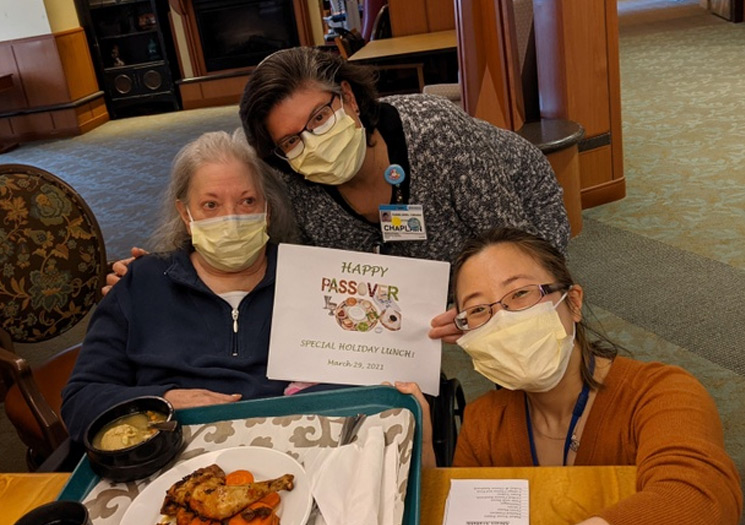
L to R: Anita Bader, SJM Resident Harmony Square, Rabbi Ariel Tarash, SJM Chaplain, and Jennifer Louie, Recreational Therapist, SJM Harmony Square
In celebration of Passover, the staff at St. Joseph Manor provided a traditional meal and program for residents of the Jewish faith.
Rabbi Ariel Tarash, MA, MSW, MAHL, who serves as the Jewish chaplain at St. Joseph Manor and rabbi for Holy Redeemer Hospice, worked with Cura Hospitality to provide nearly 200 residents and staff with a traditional Passover lunch on March 29th. The menu included Matzah ball soup, roasted chicken quarters, carrot tzimmes with raisins, and fresh-cut fruit for dessert.
“Food brings back so many memories for our residents, and the smells and tastes of food can connect them to those memories,” says Rabbi Ariel. “For the St. Joseph Manor residents of Jewish faith, this means a lot to them that we are observing and celebrating Passover.”
To help ensure the safety of residents and staff, the Passover meals were hand-delivered to each resident’s room while Rabbi Ariel led a virtual celebration via Zoom featuring popular holiday songs and a retelling of the Passover story.
The Passover celebration at St. Joseph Manor represents just one of the many ways we embrace opportunities to celebrate beloved traditions that inspire joy and kinship as we honor the rich diversity of our patients, families, and staff.
categories:

To reaffirm our ongoing commitment to Care, Comfort, and Heal in a modern world, we are excited to announce the launch of our new Redeemer Health website.
Our refreshed website—along with our new name—is part of a renewed promise that all members of our community can access the same high-quality care they’ve come to value, as well as valuable information and opportunities to connect.
The new website includes expanded information about our providers, including physician ratings, bios and some videos. Through the website, our patients also have access to a convenient patient portal allowing quick and secure access to their medical and health information. Additionally, patients can pay bills online and request diagnostic testing.
The new website also features inspiring stories about the meaningful connections we share with patients and families. Do you have a story to share? We'd love to hear from you! You can share your Redeemer story here.
While our name and website have changed, our devotion to Care, Comfort and Heal does not waver. Most importantly, our mission—our calling to care for bodies, minds and spirits—remains the same as it was nearly a century ago.
Welcome to Redeemer Health, a new era and expression of who we are and the care we are dedicated to provide.
categories:
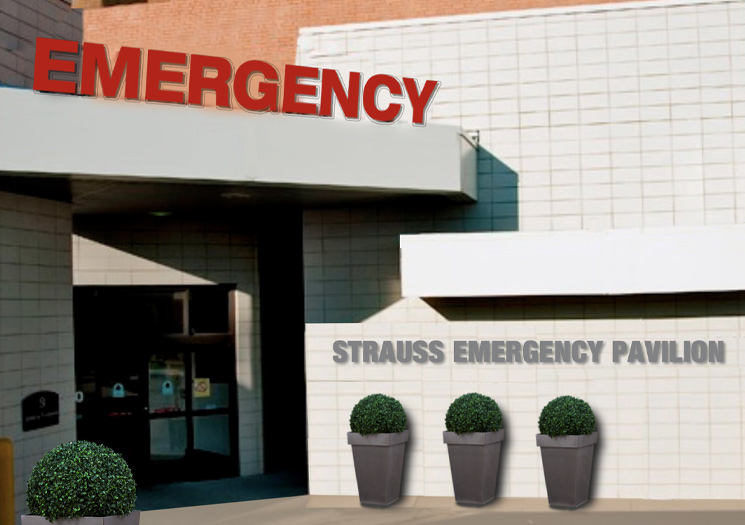
You’re not alone if you’ve ever pondered when and why it is necessary to visit the Emergency Department. When faced with some events, such as heart attack, stroke and severe illness, every minute counts. Life-saving interventions may be needed to improve the chances of recovery.
As an easy reference, here are the top reasons to seek immediate care and visit the Emergency Department.
- Signs of heart or lung problems (including difficulty breathing, chest pain, abnormal heart rhythms, and pain in the arm or jaw)
- Signs of stroke (including weak or drooping on one side of the body, slurred speech, or inability to speak)
- Severe upper respiratory infection
- Sharp abdominal pain
- Broken bones and sprains
- Trauma and injuries (including head trauma, eye injuries, deep cuts, severe bleeding, and serious burns)
- Sudden, severe headache
- Animal bites
- Back pain
- Skin infections
Of course, this list is not exhaustive. If you unsure a condition warrants emergency care, always call 911.
Taking Extra Precautions to Provide Safe Care in the ER
Patient and employee safety has always been a distinct part of our culture, and we’re taking further steps to keep you and your loved ones protected to limit exposure to COVID-19. These safety precautions include thorough disinfection and cleaning, mandatory masking, careful social distancing, and stringent screening.
We’re Here 24/7
At Redeemer Health, we’ve been providing quality, compassionate care to our community for more than 40 years. If you or a loved one needs emergency care, it’s important to not delay the vital care you need. Our Emergency Department is here for you 24/7, and our team is ready to provide a fast diagnosis, appropriate treatment, and comforting experience.
categories:
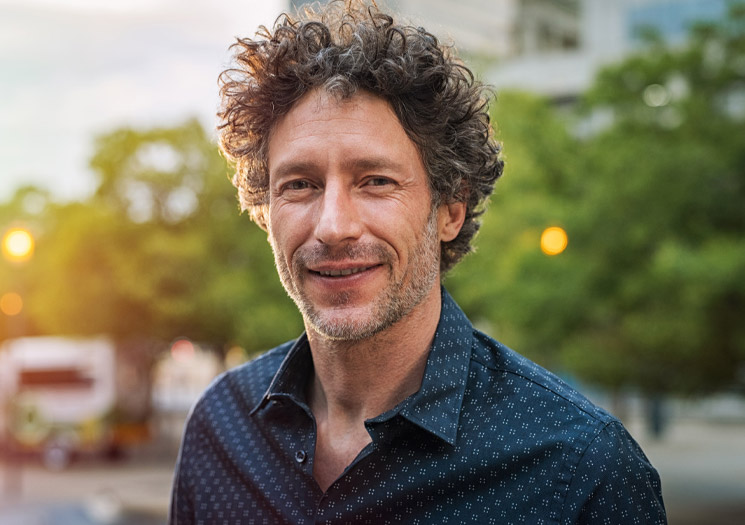
At home colon screening tests have become more widely available. While a colonoscopy is still the most reliable way of preventing and detecting colorectal disease, an at-home screening test is an option for those who are not experiencing any symptoms and are considered a low risk for colon disease. While they’re not as precise and don’t allow for immediate treatment, they are better than skipping a screening altogether.
A study published in the Annals of Internal Medicine has determined that at-home fecal immunochemical tests (FITs) are effective for people at average risk for colorectal cancer. A FIT detects blood in the stool that can be a red flag for several conditions, including hemorrhoids, ulcers, inflammatory bowel disease (IBD, Crohn’s disease, or ulcerative colitis), and colon and rectal cancer.
“There are some very good home screening tests out now that can detect DNA in the stool, suggestive of a cancer” explains Steven A. Fassler, MD, a surgeon with Colon and Rectal Associates, “But while the tests are reliable, the gold standard is still the colonoscopy. Additionally if the DNA is positive you will need to follow up with a colonoscopy”
What to expect
The tests must be ordered by your doctor, who will also receive the results. You collect a small amount of fecal matter with a swab and mail it to a lab, where it will be analyzed for blood (a common indicator of colon cancer or precancerous polyps) as well as for any DNA changes in the cells. Results are usually sent out within two weeks. If something is detected by the test your doctor will contact you or if you have question about the results, make a follow-up appointment with your doctor. In many cases insurance will cover most, if not all, of the cost of an at-home test for those who meet the age requirement. Check with your individual insurance plan.
Is it right for you?
Ask your physician, based on other factors, family history, genetics or symptoms, they will be able to tell you if an at-home screening is appropriate for you. “The best defense against colon cancer is to get regular screenings,” said Dr. Fassler, “With diagnostic tools like in-home screening and regular colonoscopies, we can catch cancer early, when it is easier to treat.” While there’s nothing that definitively prevents colon cancer, a healthy lifestyle including exercise and a diet with limited red meat and processed foods, as well as regular screenings, can be helpful in reducing your risk.
Ready to get scanned? Talk to your primary care physician to see if you are a candidate for in-home screening or if you need a referral for a colon and rectal surgeon or a gastroenterologist call the Redeemer Health information and referral line at 800-818-4747 .
categories:

Easily Dispose of Old Electronics
Holy Redeemer Lafayette, a Redeemer Health Life Care community, will host a free e-waste recycling event on Saturday, April 17, 10am –1pm, in its large, outdoor parking lot.
During the event, The Junkluggers, an eco-friendly company that provides sustainable disposal services, will accept small appliances, printers, computers, laptops, VCRs, miscellaneous wire, random metal items, and other electronic items with a plug except TVs or monitors.
During the event, visitors will also be invited to tour Holy Redeemer Lafayette, a senior living community that offers maintenance-free living and features stylish apartments with all-inclusive services. In additional to tours, sales counselors will be available to answer questions, as well as provide information on services, amenities, floorplans, and move-in specials.
Holy Redeemer Lafayette is located at 8580 Verree Road in Northeast Philadelphia. The community, which sits amid scenic Pennypack Park, is easily accessible to residents throughout the Great Northeast and many suburbs including Abington, Jenkintown, Elkins Park, Huntingdon Valley, and Bryn Athyn.
For more information about Holy Redeemer Lafayette visit holyredeemer.com/lafayetteliving or call 215-214-2877.
categories:
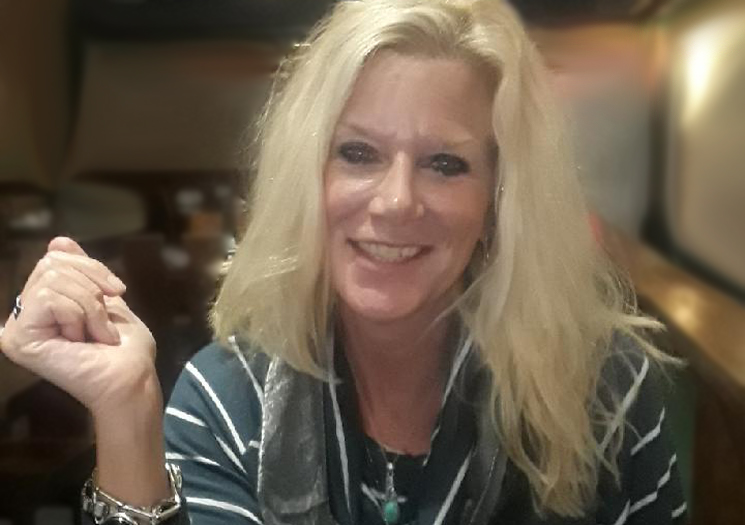
Rising floodwaters, a torrential downpour, and winds that topped 60 mph couldn’t stop one dedicated home care nurse from delivering patient care.
While wrapping up one patient visit and readying to drive to the next, Deb Miller, a Redeemer Health Home Care Nurse Case Manager, faced down severe weather conditions to save the day. The frightening torrent of wind and water might have unnerved and sidetracked many people, but Deb, a nimble problem solver, held tight as water brushed against her knees and surrounded her in all directions.
Despite the massive flooding, Deb managed to get her car to a higher area and waited to see if the bay would recede. It didn’t. After the state police said they couldn’t physically get to her, she was stranded.
When her adrenaline kicked in, Deb’s quick-thinking revealed another way. Knowing there are higher parts of town that may not be flooded as badly, Deb called a friend and asked, “If I can get to the center of town, can you pick me up?” She abandoned her car and made her way to the beach.
"My thought process was if the bay is in, the ocean is out, and I should have enough sand to walk on,” Deb said. And walk she did, although she describes it as being blown down the beach. It required her scrambling over high dunes to get to the beach and anchoring herself against the high winds, all the while getting pelted with rain and sleet.
After 22 blocks, a soaking Deb safely reached the center of town and her waiting friend, who drove her 25 miles so she could reach home.
But the story doesn’t end there. Without a second thought, Deb changed into dry clothes and headed out so she could attend to a patient who required wound care in North Cape May.
Deb proved herself an unsinkable hero. While amazed at the conditions that Deb surmounted, Veronica Schuck, Deb’s supervisor, wasn’t surprised by her tenacity. “That’s what it’s all about. We have a dedicated team always there for their patients to make sure they are safe and well cared for. They go above and beyond to embody our mission to Care, Comfort, and Heal.”
categories:
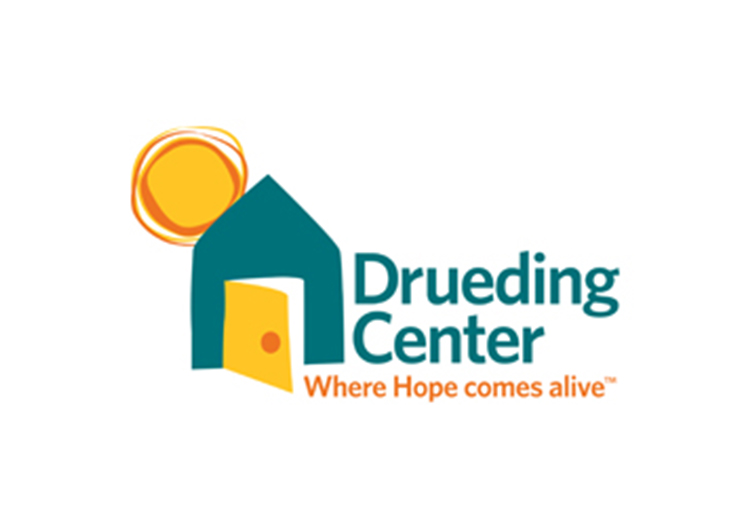
In a four-story, 90-year-old stone building in North Philadelphia, the staff at Drueding Center, Redeemer Health’s transitional housing program for young families experiencing homelessness, are quietly changing lives.
The top three floors house 30 families who need support to heal from trauma, restore hope, and end homelessness. Each is assigned a Family Advocate, who provides intensive case management and works with families to develop goals around housing, education, employment, health, and life skills.
Drueding Center is unique among organizations of its kind in that it offers a licensed, NAEYC accredited childcare on site and provides After Care services to families for up to seven years after they move into permanent housing.
Resourceful Solutions Combat COVID-19 Challenges
Programming for residents is a critical part of continuing their healing process. It is an essential part of Drueding Center’s residential program, not only for sharing information, but as a way for staff to get to know their clients and each other.
Prior to the pandemic, most programming activities took place in the Center’s multipurpose room. COVID-19 changed everything. “In March, things came to a screeching halt. By summer, we realized we needed to figure what to do and went through all of our programming to see what could be offered either in person, in small groups, or virtually,” says Anne Marie Collins, Drueding Center’s Executive Director.
The Age of “Zooming” Begins
The first challenge was installing WIFI throughout the residential building. “We’d had to put this off due to cost but now, with children trying to go to school online and some parents working remotely, we moved ahead and invested over $60,000 to get the building wired.”
Next was acquiring the necessary technology. Zoom accounts were set up for meetings, then quickly applied to programming. Director of Community Services Ron Allen is spearheading the effort to acquire the additional technology that all program areas will need to be successful.
“As the pandemic spread, we were adjusting from day to day. Meeting size went from 12 people to six to no one showing up,” says Ron. “We wanted to continue established programs that our families looked forward to, and it was a bit of a scramble to learn the equipment and then help them adjust as well.”
New Neighbors, Drueding’s permanent supportive housing program, was the first test of the new virtual experiences and a definite success story. “We learned we’d need to work with each family to make sure they could navigate the technology and came up with some incentives to participate,” says Ron. “We knew we couldn’t just be talking heads for an hour, so we had to make things both brief and fun.”
Adding a game show element has been extremely popular—and competitive. As participants grew more comfortable and started spreading the word, New Neighbors participation grew steadily every month, from four or five families at the beginning to 11 in January.
New Ways to Engage Residents
All Drueding activities are voluntary, and when programs were in person Assistant Director of Education Cheree Webster-Jones could usually generate interest by providing a meal.
Before the pandemic, Cheree had arranged Family Fun Days, field trips to the zoo, and other attractions, but those are now on hold. The key she says, is to keep everything as interactive as possible and to ask participants for feedback and suggestions.
“I always assumed young people would love doing stuff virtually because they’re always on their phones, but I learned programs don’t tend to generate the same excitement as social media.”
Yet, despite this challenge, Cheree has succeeded in finding creative pathways to keep residents engaged—such as introducing new foods via monthly virtual cooking classes held in collaboration with Greener Partners and during Halloween, launching Pumpkinpalooza, a fun family activity made possible by 30 pumpkins donated from Carversville Farms.
Looking Toward the Future
Despite the hurdles—technical glitches, Zoom fatigue, scheduling, and program development that syncs with the “new normal” of the pandemic —Drueding’s virtual programming has the potential to reach a much larger audience than pre-pandemic, especially once its YouTube Channel is up and running. YouTube would allow for programs to be available on demand, eliminating the former complications of scheduling.
Additionally, Drueding hopes to improve its programming by obtaining tablets for its residents, investigating additional virtual platforms, and developing new partnerships.
Nothing Hinders Drueding’s Dedication to Families
Drueding Center is a tangible expression of Redeemer Health’s commitment to families and an embodiment of its mission to care, comfort, and heal.
Anne Marie Collins, Vice President and Executive Director of Drueding Center, is very thankful for her staff, who she says has gone above and beyond this past year. For instance, Drueding’s Green Light food pantry has remained open without volunteers because employees have pitched in to schedule appointments, assemble bags, and get the food out the door to those who need it.
Working at Drueding Center is not like most other jobs. Cheree enjoys teaching residents new life skills. “Sometimes our clients have never had anyone teach them how to interact with other people, so we’re the first successful relationship that they’ve had,” she says.
Ron appreciates that the support he provides has real impact. “Being part of a solution or a success story for someone is rewarding,” he says. “Yes, there are times when you’re subjected to some very sad circumstances, but I don’t think if I was an accountant and saved my company some dollars that it would feel the same as helping someone in dire need.”
Anne Marie concurs with Ron. “We might not get to see the eventual success of everything we do, but we’re giving young families the opportunity to stop, take a breath, recognize some of the traumas they’ve endured, and give them the skills to address those traumas and realize that they can have a future.”
